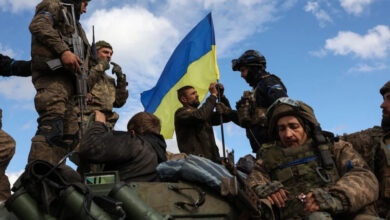Denmark announced Thursday it would withdraw a newly deployed contingent of 100 troops from Mali after repeated demands, which Copenhagen denounced as a “political game” by the military junta.
The Danish soldiers arrived in Mali just this month to join European special forces supporting Bamako’s anti-jihadist operations.
“The coup generals sent out a public statement reiterating that Denmark is not welcome in Mali,” Foreign Minister Jeppe Kofod said.
“Of course we do not accept that. That is why we have also decided… to bring our forces home,” he told a press conference.
“We are there at the invitation of Mali. The coup generals, in a dirty political game, have withdrawn that invitation.
“Unfortunately, it is a game we see because they do not want a quick way back to democracy,” Kofod added.
Trine Bramsen, Denmark’s Defense Minister, told reporters the troop repatriation would “take some time.”
“We cannot stay when the government of Mali does not want us. We are there because Mali has asked us to come and help them,” Bramsen said. “We don’t want to be a laughing stock either,” he added.
‘As Soon as Possible’
The Danish army issued a statement saying the withdrawal would take place “as soon as possible” but it would likely take “several weeks” to bring home soldiers and equipment.
The junta, which came to power in a coup in August 2020, first asked Denmark to withdraw the forces on Monday, following a deployment it said had been undertaken without consent.
The next day, Kofod told reporters Danish troops were in Mali “on a clear basis” following the invitation and that his government was seeking clarification.
Mali’s military government responded late Wednesday by repeating the demand, stating it had read Kofod’s “inappropriate” comments with “surprise and consternation.”
French Foreign Minister Jean-Yves Le Drian blasted the junta as “irresponsible” for its expulsion of the Danish contingent and warned of a “unanimous, firm, determined” response from Mali’s international partners.
Calling the regime “illegitimate” and “power-hungry,” he said that “we will have to draw the consequences” from its actions, without going into specifics.
Denmark has previously sent troops to participate in military interventions in Mali, some with the UN’s MINUSMA peacekeeping force and others with the French-led Operation Barkhane.
The new contingent was joining Task Force Takuba — a 900-strong French-led unit launched in March 2020.
Takuba brings together special forces from European nations to advise Malian troops and assist them in combat.

Mali has been struggling to quell a brutal jihadist conflict that first emerged in 2012, before spreading to neighboring Burkina Faso and Niger.
Other military contributors are the Netherlands, Estonia, Sweden, Norway, Belgium, the Czech Republic, Portugal, Italy, and Hungary.
‘Greatness of Silence’
The withdrawal represents a new setback for the European anti-jihadist force, which on Wednesday asked the Malian junta to “respect the solid grounds on which our diplomatic and operational cooperation” is based.
Relations have soured between the ruling military and France, the former colonial power which leads the military coalition, since the army seized power.
Tensions rose further from December, when West African states imposed sanctions, including a trade embargo and border closures, on the conflict-torn Sahel nation.
The measures from the Economic Community of West African States (ECOWAS) were a response to a junta proposal to stay in power for up to five years before staging elections — despite an earlier commitment to hold the vote in February.
European countries have also raised concerns over the deployment of mercenaries from Russia’s Wagner group on Malian soil.
On Tuesday, French Defence Minister Florence Parly accused Mali’s junta of multiplying “provocations” when it asked for the Danish withdrawal.
Junta spokesman Colonel Abdoulaye Maiga responded by advising Parly to heed the 19th-century French poet Alfred de Vigny’s verses on the “greatness of silence.”











